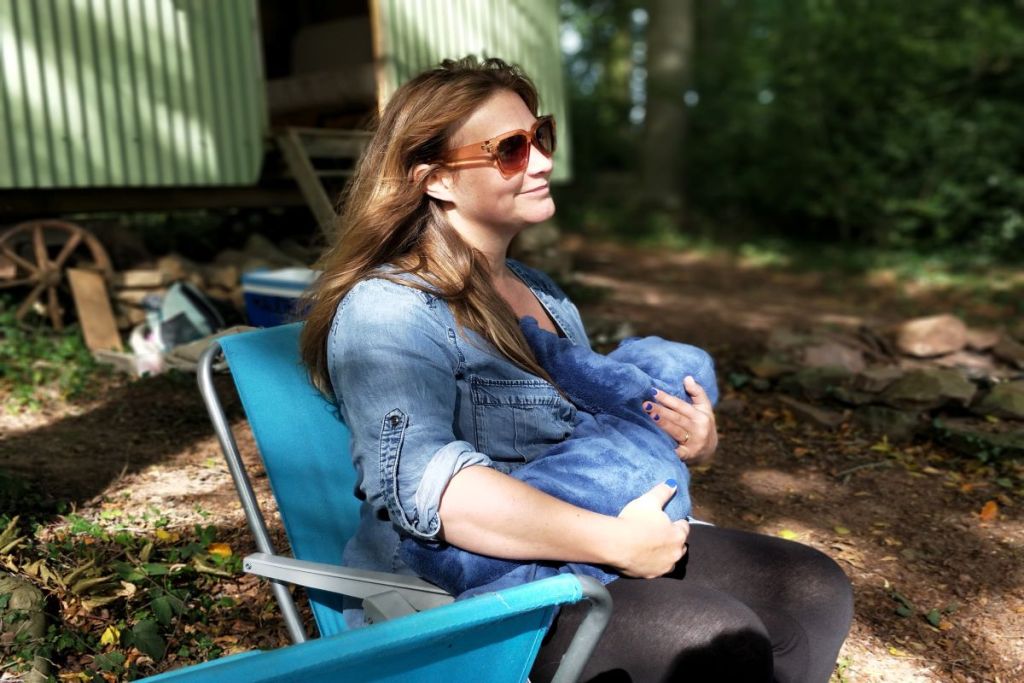Postpartum weight loss presents another step toward getting your strength and energy back. Giving birth is hard work, and your body needs some self-care to bounce back as opposed to crash dieting and rigorous workouts. So, let’s explore how long it takes for postpartum weight loss to take effect. We’re also sharing five tips that’ll help you to feel your best and possibly shed some pounds over time.
How long does it take to lose weight postpartum?
For some women, the “baby weight” starts to come off anywhere from six months to a year. During the first six weeks, most new moms lose half of their pregnancy weight due to the physical changes that take place. If you factor in breastfeeding, the weight loss occurs at a slightly quicker pace since the hormone fluctuations cause the uterus to contract and “shrink” back to its pre-pregnancy size. Nevertheless, any route that you take towards postpartum weight loss should entail the healthiest practices regarding nutrition and exercise and ultimately should also lead to an overall feeling of wellness.

Breastfeed if possible
According to Arthur I. Eidelman, MD and Richard J. Schanler, MD in the Journal of the American Academy of Pediatrics, exclusive breastfeeding for at least six months to a year and beyond mutually benefits both mom and baby. With regard to weight loss, more research is needed. However, some positive observations have been noted, such as a 1.38-kilogram difference between mothers who breastfed for six months and those who didn’t. Furthermore, the authors point out a significant risk reduction in cardiovascular disease and hypertension. Plus, your body uses its storage of fat cells during breastfeeding. Combining this with eating nutritious meals and slowly building in physical activity will have a more profound effect on weight and most importantly, your health.
Keep track of calories
When it comes to counting calories, you probably shouldn’t dwell too much on the matter right after giving birth. If you’re breastfeeding, you’ll need a few extras to make up for milk products; plus, you might have to be careful with your iron levels so as not to become anemic.
Keeping in mind the virtues of a well-balanced diet, you can refer to a calorie counter book like, The Complete Book of Food Counts, 9th Edition: The Book That Counts It All by Corrine T. Netzer, which gives you information on all of your favorite foods and beverages including fat and sodium levels.
If you don’t have time to flip through pages, then the handy Ozeri ZK19 Touch III 10 kg Digital Kitchen Scale with Calorie Counter proves to be a helpful gadget to have in the kitchen. So whether you’re measuring portions of meat and poultry or a tablespoon of butter, this scale gives both the weight and the number of calories in that portion.
Avoid processed food and simple carbs
If counting calories is not possible due to a time crunch, then another tip is to steer clear of processed foods, such as deli meat, frozen entrees, and simple carbs, such as white bread and donuts. Fast food, due to its high cholesterol and sodium levels, would also be crossed off the list along with soft drinks.
Nevertheless, the irony of the situation of very little sleep, time, and energy might make this tip difficult, but sometimes doing some meal prep during the weekend while your baby is napping helps curb the temptation to order something that’s not as healthy. Plus, if you have an app at your fingertips to be able to access simple recipes, then the process just got a whole lot easier.

Incorporate physical activity to speed up postpartum weight loss
Part of postpartum weight loss and recovery includes getting some exercise—but with some extra caution. Just after giving birth and particularly in the case of a Cesarean section, you’ll need at least six weeks for an incision to heal. In the meantime, you can strengthen your pelvic floor by doing some Kegel exercises. For the time being, you can start with short walks and increase your distance and pace as your body allows you. Walking, alone, according to the CDC, provides aerobic activity to strengthen your heart and lungs while burning off extra calories.
Later on, you can incorporate some simple resistance training to build muscle and strengthen your back and core. Other awesome perks to strength training are improving bone mass, lightening up your mood, and lowering your blood pressure.
Stay hydrated
Also, don’t forget to pay attention to your water intake, especially if you’re breastfeeding. However, even if you’re bottle-feeding, drinking enough water is extremely important. In this case, you’ll need at least two liters a day, whereas if you’re lactating, two to three liters is the minimum. When you don’t drink enough water, your body gets fooled into believing that it needs more food as opposed to fluid. And that confusion can wreak havoc on your postpartum weight loss efforts. Besides, if you’re not a fan of plain water, you can squeeze some lemon juice or use a fruit-infusing pitcher. The extra vitamin C and antioxidants help tremendously with tissue repair.
Another important tip to remember is to get enough rest and to sleep when the baby is napping. If you feel overly tired, then you won’t have the energy to move around much less prepare a healthy meal. Also, please don’t be self-conscious about asking for help at any point in your postpartum weight loss journey. After all, having a support base to cheer you on (and help with the baby) will make your adjustment to this new phase in life less stressful and more joyful.



